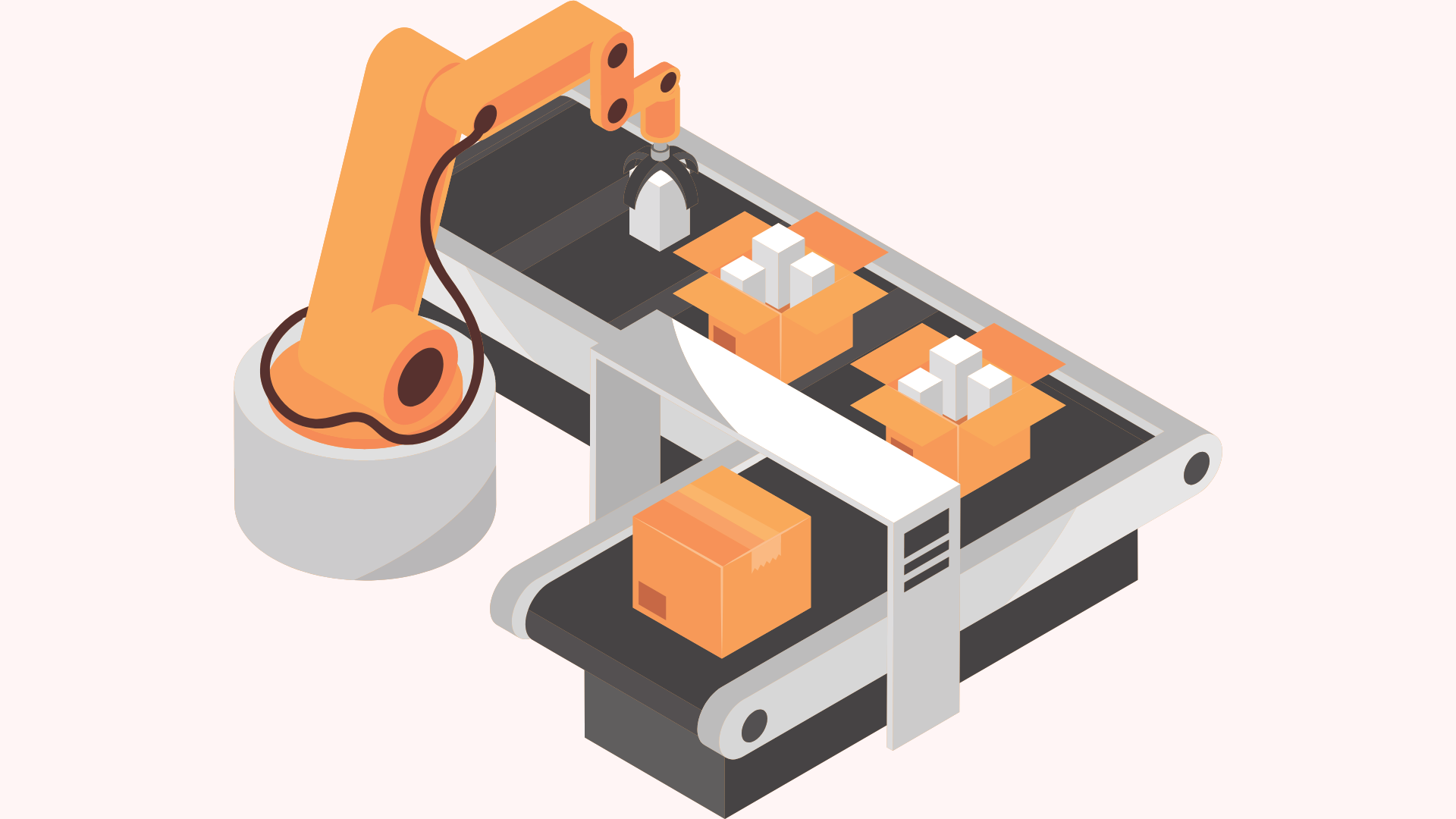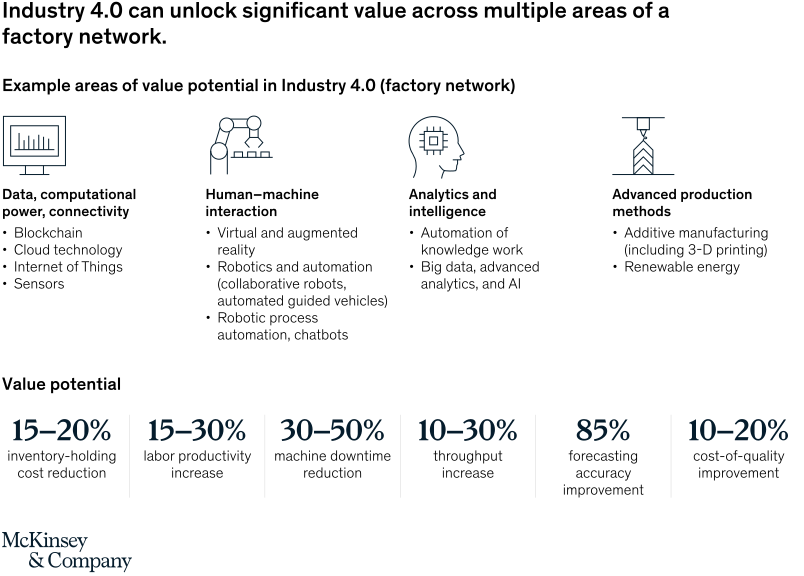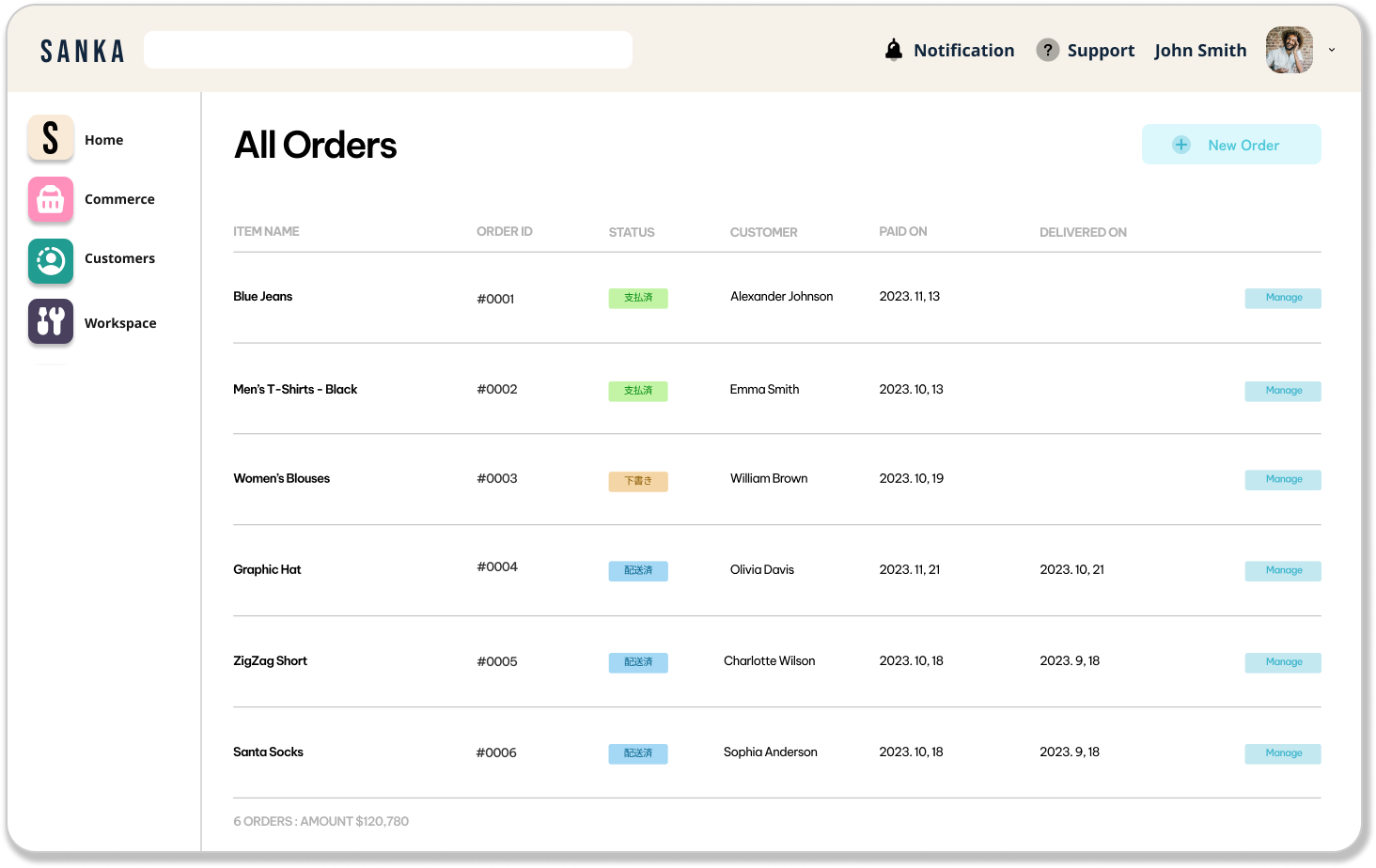Introduction
Digital transformation — the buzzword that has been dominating discussions in boardrooms around the globe — is a force to reckon with, particularly in the manufacturing industry.
But what is digital transformation in manufacturing? Nevertheless, how can it bring efficiency to processes, provide the needed agility, and offer competitive advantages in today's Industry 4.0 landscape?
A vital revolution, digital transformation is not just about the assimilation of modern technologies into a manufacturing environment; it’s above all about using these technologies and data to revolutionize business operations, enhance operational efficiency, and keep pace with the growing market expectations.
This blog post unveils the very essence of digital transformation in manufacturing, its benefits, impacts, and some examples of digitization.
Defining Digital Transformation in Manufacturing
In the realm of manufacturing, digital transformation refers to the integration of innovative digital technologies into all sectors of manufacturing processes.
It goes beyond automating manual tasks and involves the fundamental change of business operations, fostering a culture of continuous innovation and enhancement.
With the emergence of Industry 4.0, digital transformation is now pivotal for manufacturers to remain competitive and responsive to ever-changing market demands.
It encompasses aspects such as automation, Big Data, artificial intelligence (AI), Internet of Things (IoT), machine learning (ML), and advanced analytics.
By integrating these technologies into their operations, manufacturers can achieve better connectivity, real-time insight, improved production quality, predictive maintenance, and a more agile supply chain.
Benefits of Digital Transformation in Manufacturing
The convergence of the digital and physical manufacturing worlds offers unforeseen benefits and opportunities:
- Improved Efficiency: Digital transformation facilitates better resource management and minimizes waste. The implementation of AI and ML can improve decision-making processes and automate time-consuming tasks, leading to significant productivity gains.
- Enhanced Product Quality: By harnessing the power of data analytics, manufacturers can maintain granular oversight of the production process and tackle issues before they become a problem, improving overall product quality.
- Increased Operational Agility: Digital transformation empowers manufacturers with real-time actionable insights, which in turn enables faster decision-making and reaction times to changes in the market.
- Improved Customer Experience: With advanced data analytics, manufacturers can gain valuable insights into customer behavior and preferences, which can drive more personalized offerings and enhanced customer experiences.
Impacts of Digital Transformation in Manufacturing
The impacts of digital transformation in manufacturing are far-reaching:
- Production Shifts: In a digital manufacturing environment, mass production gives way to customization. Advanced technologies, such as 3D printing, are allowing manufacturers to shift from mass production to mass customization.
- Value Chain Integration: Digital transformation initiatives often involve the integration of supply chain activities, providing better visibility, tighter controls, and more streamlined operations.
- Workforce Transformation: There is a shift in workforce requirements in digitally transformed manufacturing operations. While the need for manual, repetitive tasks decreases, the demand for tech-savvy personnel with skills in digital technology application and data analysis increases.
- Creation of New Business Models: Digitally advanced manufacturers are discovering new business models. The use of IoT allows for new approaches such as "manufacturing-as-a-service" (MaaS).
Best Strategy to Implement Digital Transformation in Manufacturing
To implement digital transformation in the manufacturing industry effectively, companies must adopt a strategic approach designed to meet their business objectives and unique requirements.

Here are some strategies that have worked for leading manufacturing companies:
Assess the current digitalization level
Begin by understanding your present state of digital maturity, including the technologies you're currently using and how they're impacting your processes.
Identify the areas in which digitalization could provide the most significant benefits and prioritize them based on organizational goals.
Set a clear vision for the future
Develop a concise, forward-looking vision for digital transformation. This vision should consider the long-term impact of digital technologies on your operations, products, and customer experiences.
Align this vision with stakeholder expectations to ensure cross-functional support and collaboration.
Build core competencies
To stay protected from digital disruption, companies need to develop awareness, informed decision-making, and rapid implementation competencies.
Investing in education and training for employees, along with infrastructure and technology, is essential.
Choose appropriate digital technologies
Leveraging innovative technologies, such as AI, IoT, ML, and data analytics, can empower manufacturers to drive growth and profitability.
Select those technologies that align with your vision and address your unique challenges to maximize their impact.
Adopt an agile approach
Embrace organizational flexibility and continuous improvement by adopting an agile approach. Stay open to change, encourage iteration, and be prepared to make course corrections as new challenges and opportunities emerge.
Value chain integration
Integrate digital transformation across the entire value chain, from supply chain management to customer relationship management.
This holistic approach will ensure seamless communication, increased visibility, and efficient decision-making throughout your organization.
Monitor progress and measure success
Continuously evaluate the implementation of digital strategies by establishing relevant key performance indicators (KPIs). Identify potential roadblocks, analyze the data, and make data-driven decisions to adjust your strategies as needed.
Digital Transformation Challenges in Manufacturing
Digital transformation is increasingly vital for the manufacturing industry, driving significant innovations to streamline processes, enhance productivity, and deliver better customer experiences.
However, along with the vast opportunities it presents, it brings forth numerous challenges that manufacturers need to effectively and strategically overcome.

These are the most common digital transformation challenges in the manufacturing sector:
Integration of Legacy Systems
Many manufacturing firms have been operating for decades and have deeply entrenched systems and methodologies.
This legacy equipment may not readily interface with the new digital solutions, leading to integration issues.
Manufacturers often struggle to find the right balance: maintaining their existing systems while embracing new digital technologies.
Talent Gaps
The shift towards Industry 4.0 requires a workforce skilled in digital technologies, data analysis, and digitally-driven operations.
However, manufacturers often find it challenging to recruit and retain talent that aligns with their digital objectives.
Additionally, upskilling existing employees to navigate advanced technologies can be a significant challenge.
Data Management and Security
Digital transformation produces a large volume of data, which can provide valuable insights if managed correctly.
However, managing, processing, and analyzing this data can be taxing without proper tools and expertise.
Moreover, securing that data from breaches or leaks is another grave concern, particularly in an interconnected digital environment.
Cyberspace Vulnerabilities
Moving operations onto digital platforms invariably invites cybercrime risks. Production downtimes due to cyber-attacks can lead to abyssal losses in the manufacturing industry.
Therefore, cybersecurity preparedness is an integral part of digital strategy rather than an afterthought, making it a significant challenge for manufacturers.
Complex Supply Chain Operations
Digitalizing complex and diverse supply chain operations is often a tough task for manufacturers. This involves integration of multiple systems, processes, and entities.
Ensuring visibility, improving communication, tracking real-time data, and enabling prompt decision-making across the supply chain demand a robust and adaptable digital infrastructure.
Resistance to Change
Implementing digital transformation often meets resistance from both management and employees due to fear of the unknown, job security concerns, or simply comfort with existing processes.
This cultural resistance to change can significantly hamper a company's progress towards digitalization.
Budget Constraints
Finally, digital transformation requires considerable investment. Budget allocation for acquiring the latest technologies, hiring expert talent, ensuring cybersecurity, and conducting training can be a challenge, particularly for smaller manufacturers operating with tighter margins.
Examples of Digital Transformation in Manufacturing
Industrial IoT sensors
Internet of Things (IoT) is making a significant impact on manufacturing. Sensors embedded in manufacturing equipment collect real-time data about performance, operating conditions, and other critical parameters.
The gathered data can help in optimizing operations, predictive maintenance, and improving overall efficiency.
Data & Analytics
Advanced analytics allow manufacturers to derive insights from the vast data gathered from various sources.
These insights aid in making informed decisions and strategies that drive efficiency, reduce costs, and enhance customer satisfaction.
AI and Machine Learning
Artificial Intelligence (AI) and Machine Learning (ML) are increasingly being used for predictive analysis, process control, production planning, and quality assurance.
These technologies not only enhance efficiency but also greatly improve product quality.
Digital Twin Technology
These are virtual replicas of physical systems used to simulate, predict, and optimize system performance.
The application of digital twins in manufacturing aids in processes like product design, production planning, and predictive maintenance.
Additive Manufacturing
Better known as 3D printing, additive manufacturing allows for efficient production of complex and customized designs.
It streamlines the process from design to manufacturing, reduces waste, and accelerates time-to-market.
Cloud Computing and Big Data
The application of cloud platforms in manufacturing enables data sharing across various locations and stakeholders.
It facilitates real-time monitoring of operations, predictive analytics, and efficient data storage and retrieval.
Robotics and Automation
Robotics and automation technologies are used to automate repetitive tasks, enhance precision, and increase operational efficiency.
In addition, they significantly reduce manual error and improve worker safety.

Ready to kickstart your digital transformation journey and achieve more with less? Sanka is your ideal partner - offering customizable solutions, robust apps, and dedicated support.
Conclusion
The digital transformation journey in manufacturing might be a complex one, filled with challenges, but the benefits and impacts presented are undeniable.
Whether it's about achieving operational efficiency, enhancing product quality, increasing agility, or providing superior customer experiences, digital transformation allows manufacturing companies to stay competitive and align better with the evolving industrial landscape.
As we move deeper into the Industry 4.0 age, the key to success lies in strategic planning, stakeholder buy-in, and effective change management.
Manufacturers need to embrace continuous learning and reinvention, foster a culture of innovation, and partner with providers who can guide and support them throughout their digital transformation journey.
The future belongs to those who can harness the power of digital transformation to ignite new opportunities, drive growth, and adapt to the changing tides of the global manufacturing sector.








